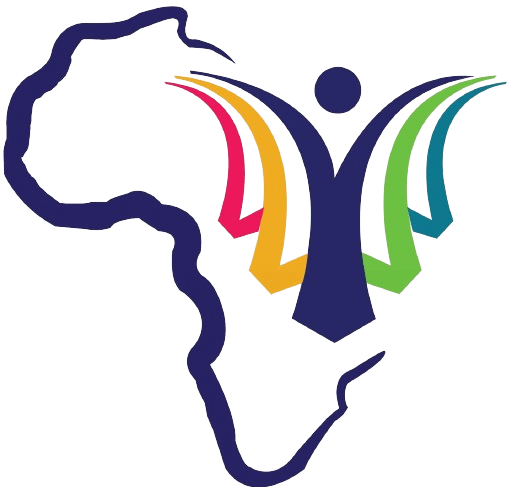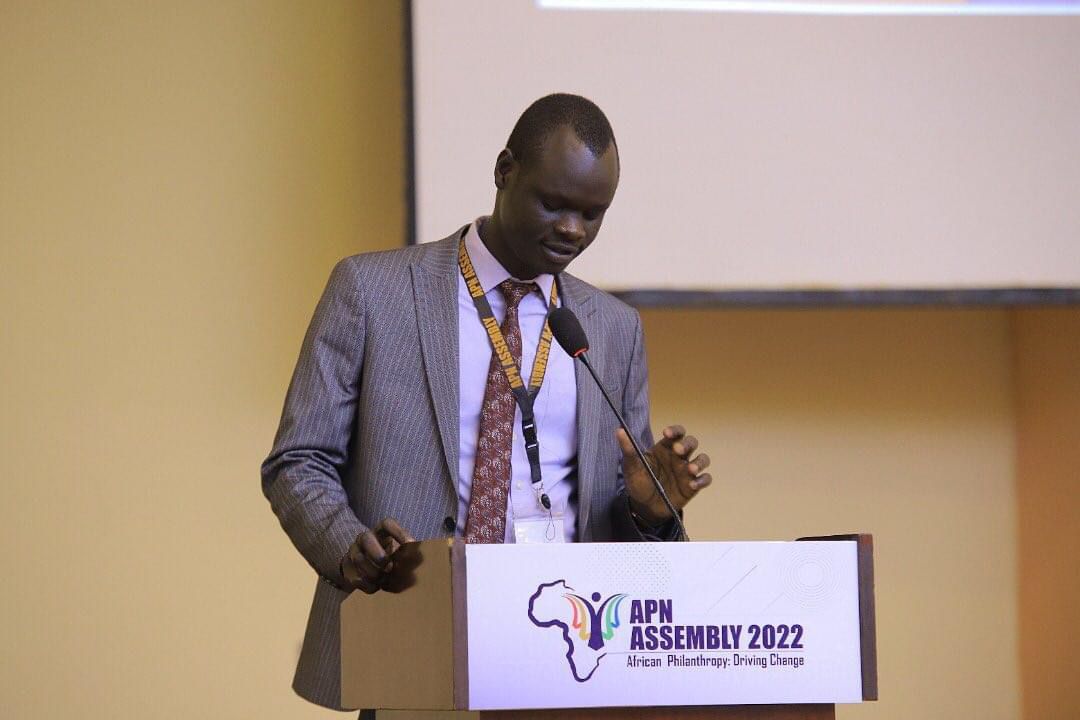During the 2022 APN Assembly that was anchored on the theme ‘African Philanthropy: Driving Change,’ one of the key areas of focus that drove my attention was the Intergenerational Dialogue that took place on the day of the youth session. The conversation was timely, exhilarating and futuristic in regards to how we can protect and sustain the future of African philanthropy. In the opening phase of the youth segment, being an ardent supporter of youth development on the continent, APN Executive Director Dr. Stigmata Tenga emphasized on the relevance of such platforms because they are the much-needed space we need for youth leadership to be unveiled and appreciated. As the youth and the Assembly enjoyed an entertainment break dancing to Bob Marley’s ‘One Love’, it was evident that the energy that youth bring to the room is unmatched and worth celebrating.
Needless to say, a society that fails to prepare its youth for the future is a society preparing to fail. The earlier we realize the generational differences that currently exist in the ecosystem, the easier it becomes to safeguard the narrative of giving and generosity on the African continent. The greatest challenge that presents itself is that we are seeing young people for what we want them to be, and not for who they are, as one of the speakers noted during the Intergenerational Dialogue Session.
The older generation of Philanthropy actors have a particular view on what it means to sustain the model, while the youth have a different perspective on how the sector can be advanced. From the submissions that were done by the speakers, it was boldly noted that such a diversity of reasoning should not lead to a contention between two generations, but should be seen as the strength of coexistence. Africa’s growing youth demographic is an opportunity for the sector. The youth of Africa by nature are philanthropic in their quest, utilization of their talents and time, and are not resolute in allocating the little resources at their disposal in transforming societies.
With that said, I want to provide key strategies that can help us make the aspiration of an Intergenerational Model of leadership in the African philanthropy sector a reality;
Creating Youth-Supportive Spaces in a Working Environment
The Millennial Generation has a different perception of work in comparison to the older generation. They want to work in environments where they feel their contribution is valued, their mental health is respected and their creativity is appreciated. They are a generation that want to emphasize empathy in an organization; instead of just a focus on outputs as traditionally expected, they want older leaders to also take the time to look into the wellbeing of the young employees. During the Intergenerational Dialogue Ivan Sebastian eloquently expressed that, “African philanthropy models are built around institutions, and these institutions are built around people, how we treat and mentor the youth in these institutions will speak to the lifespan of such institutions.” It is very easy for young employees in African philanthropy driven organizations to lose interest in the agenda when they feel their contribution is undervalued and when they are only seen as output resources and not as partners in the quest to advance the hope and dream of African philanthropy. During her keynote speech, Theo Sowa established that, “philanthropy is not what we say, it is what we do and what we do starts from within our ecosystem.” In the words of Mishek Gondo, speaking during the Assembly, “with the innovation and resilience that the youth have, we are perfectly placed to tap into the power and creativity of youth in our quest to advance the agenda of African Philanthropy.”
Creating Youth-tailored Mentorship Programs on African Philanthropy
In the words of Janet Mawiyoo, a speaker in the APN Assembly Intergenerational Dialogue, “through building strong integrational platforms with the young and old, we are able to create the change we envision as African philanthropists. We need the energy of the youth and the wisdom of the elders.” To cement on these words, Alais Ole-Moridat, also a speaker during the panel, said “young people should embrace their culture and tradition, because it’s through such values are we defined as Africans. Young people should never isolate themselves from who they are as Africans.”
The sentiments that came from these two inspiring speakers are important, but if they are to be made a reality there is a need for us to create sufficient platforms and programs where the youth can be mentored on African philanthropy practices and models. Creating youth-tailored mentorship programs will help us strengthen the already established narratives on African philanthropy, as well as the practices put in place by elders. These programs should be accessible to both the urban and rural youth, and be tailored to each respectively so as to consistently have the ideology of African philanthropy inculcated in our education. To support this affirmation, Ivan Sebastian established during the dialogue that “we have to build avenues that impact the manner in which societies think. We have to ensure that we inculcate a culture of giving in our education system, both formal and not, so that everyone grows up knowing the power of giving back to our community.”
We need to do this whilst continuing to invest in research around African giving and building programs around speaking truth to power in the Philanthropy sector centering youth actors that can take up this conversation to a greater degree. During her Ignite Talk, Karen Chalamilla made a profound call stating “the stories we tell about ourselves can either catalyze change or make us stagnant, we need to be honest with ourselves and ensure that we tell the stories that strengthen the narrative of African philanthropy.” But in order to achieve this, it calls for a dedicated quest towards mentoring the next crop of leaders that can write the story we want to tell for generations to come.
Killing the Silos Way of Advancing the Cause
During the intergenerational dialogue, Dr. Lerato Mokoena established that “operating in silos and in social enclaves does not help us achieve the change we envision as a community. How we make the world depends on how we relate with, and build one another.” When the need to compete presents itself, we lose sight of the vision and cease being a community that works together. Failure to curb this culture of competition among philanthropic actors leads to future generations seeing working in silos as the only way to operate. Therefore, there is a need to create networks of youth in philanthropic sectors across the continent. This will help us foster collective action among youth actors. Dr. Lerato Mokoena also added, “we have to reach a point where we understand that as the system of the world changes, philanthropy also changes. Giving does not mean that we are subsidizing the state of its failures, we are give because it’s in our being and in our power to translate change and impact.”
Such profound words can be brought to reality the moment we deliberately seek collaboration. In the words of the Keynote Speaker John Yohannes, “there is immense power when a group of people with a similar agenda, passion and focus come together to achieve a goal they desire to achieve. Collaboration can never be underestimated.” He went on to remind us that, “no one has ever become poor by giving back to our community. It is in our benefit to give back and achieve the change we envision as a community.”
Conclusion
Philanthropy is time, talent and treasure. Let us therefore not underestimate the power of youth in the continent. We need to build systems and strategies that allow us to work more closely with the youth of Africa. Seeing them as partners and not as mere volunteers. There is a need for us to financially support youth-driven ideas and programing; taking into consideration that we need local efforts to drive change for local problems. Intergenerational approaches in African philanthropy should no longer be rhetoric but an absolute point of action that we aggressively take into consideration.
By Mwila Chriseddy Bwanga, Social Media Engagement Specialist at Africa Philanthropy Network

